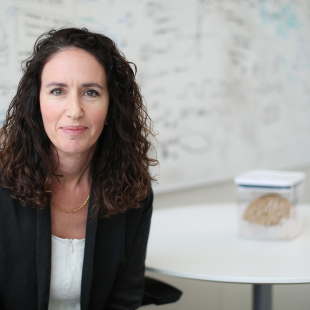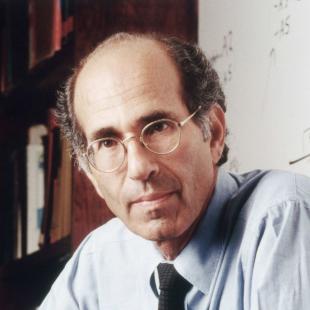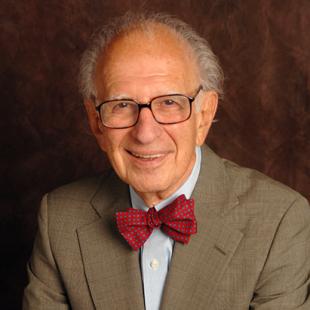Our Leadership
Led by Daphna Shohamy, PhD, and Nobel laureate Richard Axel, MD, we study critical aspects of the mind and brain, gaining insights that promise to benefit people and societies everywhere.

Daphna Shohamy, PhD
Director and Chief Executive Officer
Daphna Shohamy is Director and CEO of the Mortimer B. Zuckerman Mind Brain Behavior Institute. In this role, she works with Co-director Richard Axel, on the scientific, financial and administrative management of the Institute. She is also working to establish and direct a new cognitive neuroscience center. In 2021, Columbia University named Dr. Shohamy to lead its Kavli Institute for Brain Science and appointed her Kavli Professor of Brain Science. She is a principal investigator at the Institute, a valued teacher and mentor in the Department of Psychology and a member of the training faculty for the Columbia Doctoral Program in Neurobiology and Behavior. She is also an important contributor to undergraduate education at Columbia, teaching the science of the brain and mind to the entire incoming class of college students as part of Columbia’s Core Frontiers of Science course.

Richard Axel, MD
Codirector
Richard Axel is a Nobel laureate; a University Professor; an investigator at the Howard Hughes Medical Institute and Columbia's Vagelos College of Physicians and Surgeons and a codirector of Columbia’s Mortimer B. Zuckerman Mind Brain Behavior Institute. Dr. Axel obtained an AB from Columbia College and an MD from Johns Hopkins Medical School. In earlier studies, Dr. Axel and his colleagues, Michael Wigler and Saul Silverstein, developed gene transfer techniques that permit the introduction of virtually any gene into any cell. These studies not only allowed for a novel approach to isolate genes but also provided a detailed analysis of how they worked. At the same time, these experiments allowed for the production of an increasingly large number of clinically important proteins. These studies also led to the isolation and functional analysis of a gene for the lymphocyte surface protein, CD4, the cellular receptor for the AIDS virus, HIV.
Founding Codirector
-

Eric R. Kandel, MD
Founding Codirector (retired)
Eric R. Kandel is a Nobel laureate; University Professor Emeritus; Founding Codirector of Columbia's Zuckerman Institute; Founding Director of Columbia's Kavli Institute for Brain Science; SagoI Professor Emeritus of Brain Science at the Zuckerman Institute; Professor Emeritus of Physiology and Cellular Biophysics, Psychiatry, Biochemistry and Molecular Biophysics, and Neuroscience; and a Senior Investigator at the Howard Hughes Medical Institute from 1984 to 2022. A graduate of Harvard College and NYU School of Medicine, Dr. Kandel trained in neurobiology at the NIH and in psychiatry at Harvard Medical School. He joined the faculty of the College of Physicians and Surgeons at Columbia University in 1974 as the founding director of the Center for Neurobiology and Behavior. At Columbia Dr. Kandel organized the neuroscience curriculum. He is an editor of Principles of Neural Science, the standard textbook in the field, now in its fifth edition. In 2006, Dr. Kandel wrote a book on the brain for the general public entitled In Search of Memory: The Emergence of a New Science of Mind, which won both the L.A. Times and U.S. National Academy of Science Awards for best book in Science and Technology in 2008. A documentary film based on that book is also entitled In Search of Memory. In 2012 Dr. Kandel wrote The Age of Insight: The Quest to Understand the Unconscious in Art, Mind, and Brain, from Vienna 1900 to the Present, which won the Kreisky Award in Literature, Austria’s highest literary award. Dr. Kandel’s newest book, entitled Reductionism in Art and Brain Science: Bridging the Two Cultures, published by Columbia University Press, was released in Fall 2016.
READ MORE ABOUT ERIC KANDEL.
To close the gap between our genetic and molecular understanding of the brain and what the social sciences, humanities, and professional disciplines tell us about behavior, we are creating a place for scholarship where a spirit of common inquiry yields extraordinary discoveries.